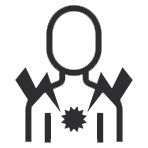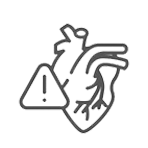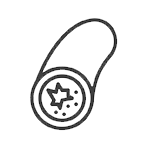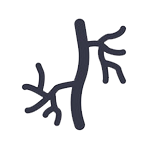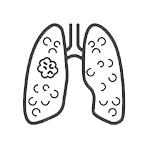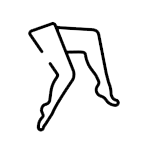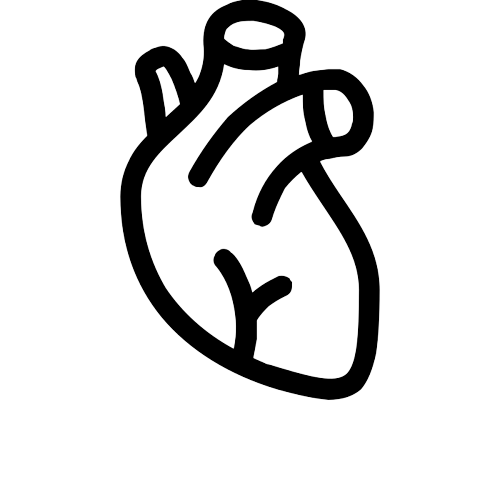High blood pressure
Q & A
What exactly is hypertension?
Hypertension, or high blood pressure, happens when the pressure within the walls of your blood vessels rises above the recommended range. It is a condition that develops over many years. It affects a lot of adults and patients may live without any obvious symptoms for years. When a person has hypertension, the blood pressure against the artery wall is too high for too long. This can lead to heart disease or other organ problems. Blood pressure is measured by how much blood the heart pumps and how hard the arteries make it for blood to flow through them. With time, having high blood pressure causes damage to the blood vessels. It causes them to thicken and become narrower, both of which will require the heart to pump blood through your circulatory system with greater effort. This further increases the blood vessel pressure, placing more strain on your heart.
Hypertension is usually a “silent” disease, and many people with it don’t have any obvious signs or symptoms. Also, it could take years or even decades for the condition to get bad enough for symptoms to show. High blood pressure that is getting worse can cause shortness of breath, chest pain, flushing, blurred or hazy vision, heart palpitations, headaches, blood in the urine, nausea, vomiting, and feeling dizzy. The problem is that these signs are often mistaken for signs of other health problems. But it is very important for people who have any of these symptoms to go to the doctor. These signs can be a sign of advanced high blood pressure or a sign that it has created irreversible damage.
How could high blood pressure happen?
Many people don’t know that there are two different kinds of high blood pressure. And each type has its own unique causes.
1. Primary or Essential High Blood Pressure
Primary hypertension, also called essential hypertension, happens over a long period of time. For primary high blood pressure, it is hard to find the exact cause because there are so many things that can cause it. Many people inherit gene mutations or abnormalities that make them more likely to get primary hypertension. A rise in blood pressure can also be caused by changes in the body, such as changes in kidney function caused by getting older or unhealthy weight changes. Also, things, like not getting enough exercise or having bad eating habits, can make a person overweight or obese, which could increase their risk of hypertension. Primary hypertension is the most common form of high blood pressure.
2. Secondary High Blood Pressure
On the other hand, secondary hypertension happens quickly and becomes worse with higher blood pressure than primary hypertension. This type of high blood pressure isn’t as common as primary hypertension, but it’s caused by other health problems, like obstructive sleep apnea, kidney disease, congenital heart disease, adrenal gland tumors, illicit drug use, thyroid problems, medication side effects, etc.
Hypertension, if left untreated, can result in serious health issues, including heart attack, heart failure, stroke, aneurysm, kidney damage, or dementia.
How is high blood pressure diagnosed?
Routinely having your blood pressure measured and monitoring for elevations above the normal range is the most effective method for diagnosing hypertension before it causes severe health complications. A blood pressure cuff monitors systolic and diastolic blood pressure. A reading of blood pressure contains the systolic value first, followed by the diastolic number.
Normal blood pressure is less than 120/80 mm Hg. However, the new American Heart Association recommended goal for adults is now less than 130/80 mmHg, with systolic values of between 120-129 considered to be elevated. If your levels are slightly over normal in either systolic or diastolic numbers, your healthcare practitioner may diagnose you with hypertension. If your blood pressure readings increase to 130-139/80-89, you enter stage 1 and subsequently stage 2 of hypertension when systolic is at least 140 and diastolic is at least 90.
How can people stop or treat high blood pressure?
Patients who are at risk of getting high blood pressure can start taking steps today to lower their risk. This will help them avoid high blood pressure and the health problems that usually come with it, like damage to the arteries, brain, and heart. Adding more healthy foods to your diet is a simple way to do this. People are encouraged to work up to eating ten fruits and vegetables every day, especially greens that are good for the heart. Also, it’s a good idea to cut back on red meat and packaged sugar-sweetened foods. Patients who are overweight or obese are encouraged to set weight loss goals that are realistic and easy to fit into their daily lives.
This will lower their risk of hypertension.
But the best way to avoid hypertension and any health problems that might come with it is to catch it as soon as possible. And the first step to doing this is to have your blood pressure checked regularly by a doctor or other medical professional. Most of the time, a person’s primary care doctor will take their blood pressure as part of their annual physical exam. After age 18, patients should ask for a blood pressure reading at least once every two years. Patients over the age of 40 or high-risk patients between the ages of 18 and 39 should ask their doctors to check their blood pressure once a year. But people who have already been diagnosed with high blood pressure or who are at a high risk of getting other heart diseases should have their blood pressure checked more often.
Patients can also use blood pressure cuffs at home or public blood pressure machines, which are most often found in pharmacies, to check their blood pressure. Still, there are some problems with these ways. Readings of blood pressure depend a lot on how well the cuffs fit and how well the machines are run.
Primary high blood pressure is usually a silent disease that develops over years or even decades and seems to come out of nowhere. Having high blood pressure can be caused by many things in the environment, in your genes, and in your body. People who want to avoid or treat high blood pressure shouldn’t try to do everything on their own. This is true whether they are trying to lose weight, eat more fruits and vegetables, or take prescription medications. Dr. Chang has helped thousands of patients in Singapore and overseas. He has a lot of knowledge about the many ways to lower high blood pressure. he is very knowledgeable and has a lot of experience with how to treat different kinds of cases, whether they are simple or complicated. He will work with you to make a treatment plan that fits your health profile.
What therapy alternatives are available for hypertension?
In the early stages, lifestyle modifications can have a significant impact on decreasing blood pressure. Your doctor may advise you to reduce your salt consumption and make healthier eating choices. They may also suggest increasing physical activity, reducing alcohol use, stopping smoking, and adopt stress-reducing practices. In addition to maintaining healthy lifestyle behaviors, the doctor may prescribe medications such as diuretics, beta-blockers, or ACE inhibitors to help you regulate your blood pressure.

